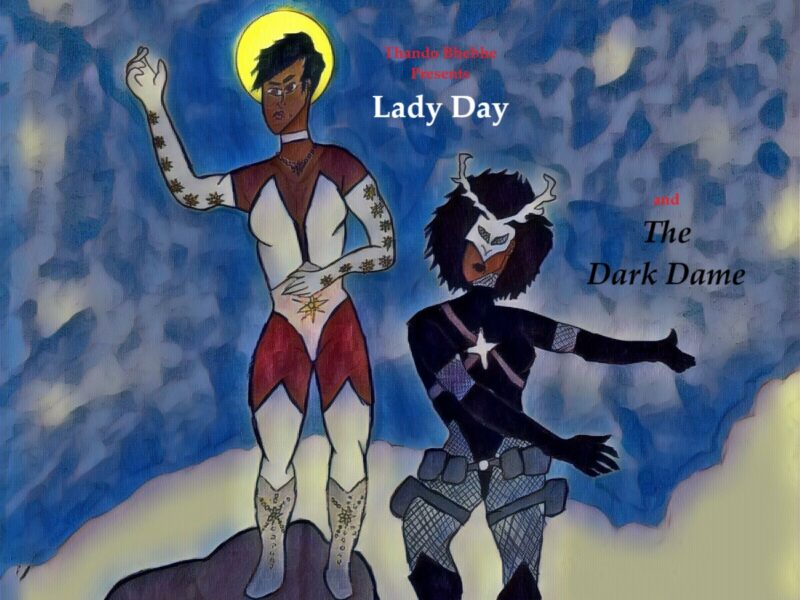Perhaps The Lion King isn’t completely inaccurate: Africa truly is a stunning, beautiful continent.
That’s what Nipissing students Lindsey Newton and Jessica McSavage learned when they travelled to Botswana for May and June. That’s what they saw when travelling through the country, when climbing 1300 metre hills in the capital city, Gaborone.
“It didn’t look like what you would expect Africa to look like from a World Vision commercial,” McSavage said. Gaborone was much more modern than expected – even the villages were modern. There was fast food – fried foods are popular – and competing cell phone companies.
But despite the safari trips – they saw giraffes – and even the chance to watch Zimbabwe and Slovakia compete against each other in The World Cup, they didn’t travel as tourists. The two students, in their fourth and third years of the concurrent education program respectively, represented Laurier Brantford’s non-governmental organization Project Empathy. Founded by a group of students and faculty in 2003, the organization seeks to raise awareness about HIV/AIDS in Canada and Botswana. Every two years, they send students to Botswana to learn about how the country handles the HIV/AIDS crisis so they can better inform people in Canada. This was the fourth trip Project Empathy has taken. The World University Service of Canada helped organize the trip. After first arriving in Botswana on May 11, Newton and McSavage completed a week of orientation with other Canadian students.
And they learned that while Botswana’s beauty was tangible, able to be touched and experienced, the AIDS epidemic was often harder to find.
As part of the application process, both McSavage and Newton researched the current status of HIV/AIDS in Botswana. Newton wrote a paper on the topic for class. The statistics are chilling. The country’s first AIDS case was reported in 1985. According to the World Health Organization, in 2007, an estimated 300,000 people in Botswana were infected with HIV. The country’s total population is less than 2 million – less than Toronto. Approximately a quarter of adults in Botswana are infected with HIV. That rate is second in the world, only behind Swaziland. Approximately 95,000 children have lost at least one parent to the disease.
Given all that information, the students assumed they would hear about the disease often. They didn’t.
This surprised Newton. She knew there was a stigma attached to being HIV-positive. But still, “I thought I was bound to see it.”
Botswana supplies medications to individuals who have HIV/AIDS. In 2008, the government provided 66% of funding for HIV/AIDS programs. But with the high infection rate, HIV/AIDS no longer shocks people, but because of the stigma attached to the disease, they still won’t talk about it. In Newton and McSavage’s experience, many see a HIV-positive diagnosis as inevitable. And when they do, they think the medications will be there, that they will provide a solution. But, as McSavage explained, eventually the body builds up resistance. And then new drugs, more expensive drugs, are needed. Helping people change their lifestyle is key.
Much of the work McSavage and Newton did was aimed at the goal, even though their interactions with individuals who are HIV-positive was limited due to confidentially reasons. The two stayed in Kanye, a village of approximately 40,000 people, an hour and half outside of Gaborone. They lived with a woman they called Grandma, and worked at Lesedi Counselling Centre, a facility that is part of Botswana Christian AIDS Intervention Program. Jobs varied: they created a filing system for the centre, took photos to send to donors, helped create a website (it’s not yet finished), ran education workshops and worked with children’s clubs.
The workshops were with parents, teaching them how to discuss sensitive topics about sex and HIV/AIDS with their children. McSavage and Newton led a section, under the Christian Family Life Education, once or two a week. Field workers from the counseling centre spoke with individuals on the streets daily. Newton taught a session specifically on the menstrual cycle. Sexual education isn’t given in schools, but people still want answers to questions about sex. So, they experiment. Newton and McSavage found that, with the people they encountered, monogamy was rare. The workshops also gave a sense of hope. They knew that when participants left, they had learned something.
Sometimes, McSavage and Newton didn’t fully agree with the methods used by the centre. For example, BOCAIP does not provide condoms as they present sexual abstinence as the first line of defence against HIV. Those who wanted condoms had to go to centres run by the Botswana Family Welfare Association – and, given the fact that some people are still not being tested for HIV, there was no guarantees they would actually go and get condoms.
But they knew many of those who worked at the centre care for the people they work with. They “really wanted to help,” McSavage said. She and Newton ran clubs with children who have lost one or more parents, or come from high-risk families. They taught the children social skills, and encouraged them to talk about problems they were having. Newton described a game where they would put a rock in a bucket, and have the children try to carry it alone. When they couldn’t, they would have someone else help them lift the bucket, showing them that problems are easier dealt with together than alone. And when the children were asked who they would go to with a problem, they most often said the counsellors – before they mentioned teachers, before they mentioned parents.
Although they were teaching, Newton and McSavage were also learning about themselves. HIV/AIDS aren’t the only diseases not mentioned in Botswana. Heart disease is rarely spoken of – if ever, possibly because their lifestyles aren’t as centered around the clock. Newton recalled having to tell people to attend a workshop an hour before it was scheduled to start to ensure they arrived on time. But once it was over, people left. There would be no staying longer, no putting in overtime hours. Often, when there wasn’t work to do, McSavage and Newton would sit and read. For fun.
“Sending Type-A people to Africa is probably the best therapy you could give them,” McSavage reflected.
Newton, who has been involved with Project Empathy since her first year and likes to be involved in several organizations, said the experience helped her “realize there is a benefit in slowing down,” and that things were still accomplished that needed to be.
For now, there’s still much to accomplish in terms of HIV/AIDS awareness. Newton, who hopes to one day adopt a child from Africa, has started sponsoring an orphan she met in Botswana. The two spent their weekends working in orphanages so they could interact more with children. Now that they’re back, the two will be working on creating an awareness campaign about HIV/AIDS for Brantford. McSavage plans to continue the blog she started while overseas to keep people aware of what’s happening.
The least they can do is keep talking about it.
For more information on HIV/AIDS or to make donations, Lindsey and Jessica suggest:
www.projectempathyafrica.org
www.avert.org
www.stephenlewisfoundation.org
Jessica’s blog – http://oneredheart.wordpress.com/



